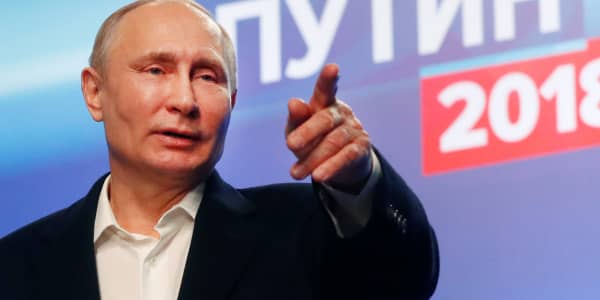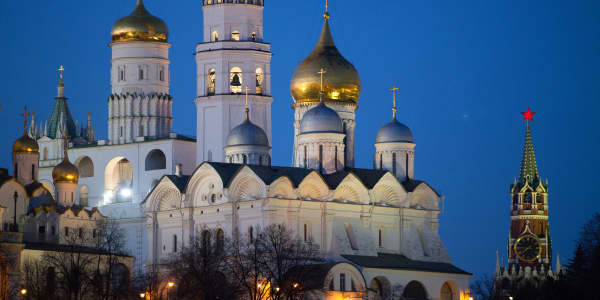Russia's state-controlled Gazprom signed a long-awaited megadeal to supply gas to China on Wednesday, which could ease the impact of Western sanctions on the country.
The deal would see Gazprom—the world's largest extractor of natural gas—supply 38 billion cubic meters of gas to China annually for 30 years, according to Reuters, under a contract valued in excess of $400 billion.
The deal was signed with China National Petroleum Corp, which is also state-controlled. Reuters reported that Russian President Vladimir Putin and his Chinese counterpart Xi Jinping applauded as they witnessed the deal being signed.
Gazprom said it would publish further details of the deal later in the day.
Read MoreGazprom head soothes Europe over gas supply
The agreement followed a gas summit in China, where Putin was one of the most high-profile guests.
The importance of Russia's energy industry and its dependence on natural resources has been highlighted by the Ukraine crisis. If there is a serious threat to its ability to export oil and gas, not only will Russia's economy come under threat, but its political stability could as well.
Malcolm Graham-Wood, founding partner at energy consultancy HydroCarbon Capital, said the deal made sense for both China and Gazprom.
"it is important for Gazprom to get outlets for its gas, if it alienates Europe much more. Plus, it has a need for a bigger market," Graham-Wood told CNBC over the phone on Wednesday.
"On the other hand, there is China's need for a secure supply of gas. On that basis it is an eminently sensible deal on both sides."
Read MoreRussia's Gazprom says low risk to Europe supplies
China is a highly desirable market for energy suppliers to tap, according to Graham-Wood, because its energy demand is rapidly rising, although it remains significantly below the more saturated U.S. market.
"It makes sense for China to sign up for as much reasonably priced gas it can," he said.
He added that the deal also relieved pressure on Russia as a whole, following the West's economic sanctions on the country following its incursions in Ukraine.
"Russia has critical difficulties with its economy, so it needs to sign up for this," Graham-Wood said.
Gazprom is the only producer and exporter of liquefied natural gas in Russia. It is among Russia's five largest oil producers and it is the largest owner of power-generating assets in the country.
Nicholas Spiro of Spiro Sovereign Strategy said the geopolitical importance of the deal was "plain for all to see".
"While a Rubicon has been crossed in East-West relations, Mr Putin will attend the St Petersburg (International Economic) Forum with a spring in his step, after clinching the deal," he told CNBC via email.
Kyle Davis, partner and energy expert at international law firm Goltsblat, said Russia would continue to push into Asian markets, even if relations with the West improved.
"Russia does not see its relationship with Europe and Asia being an 'either-or' proposition," he said via email.
"Russian politicians and business leaders have been talking up the 'Eurasian' advantages of Russia's resource wealth and proximity to key markets and will continue to push into Asian markets and seek Asian investment even after relations with the West have normalized."
Correction: This article was updated to reflect that the deal is seen valued at $400 billion.




